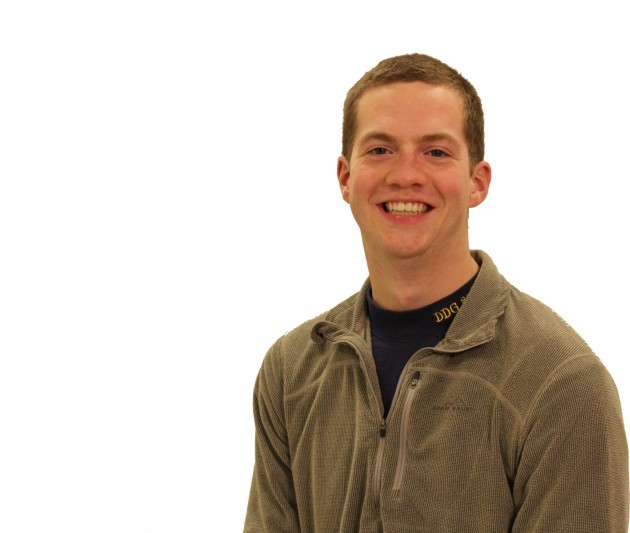
While The DePauw often produces straightforward pieces on academics, athletics and student life, sometimes our student reporters must confront complex stories where reputations are at stake.
We published one of these challenging stories earlier this week. The story focused on the controversy surrounding journalism professor Mark Tatge's investigative reporting class and the DePauw sophomore who was recently arrested. To show students the kinds of documents that are available on the public record, Tatge passed out a 17-page packet of information on the student, including court documents, her police report and her Facebook and Twitter pages.
Two of DePauw's fundamental missions were at odds. On the one hand, DePauw strives to create a close-knit community and to keep students from harm. On the other, a rigorous academic institution must give professors the freedom to challenge their students with difficult material that is relevant to the subject matter of the class.
This story had these dimensions and more. DePauw's drinking culture is one of the most important social and health issues on campus. Student groups, administrators, and student media have grappled with this challenge for years. In October, DePauw published a report addressing dangerous binge drinking on campus. Recently, policies for athletic teams have also been debated.
All of these factors merit attention and journalistic coverage. Yet at the same time, our student journalists understood that publishing a story about an incident involving an arrested student could cause additional harm to her. Likewise, the story would shine the light of scrutiny on Tatge, who is the Pulliam Distinguished Visiting Professor of Journalism and a veteran journalist who has also taught at Ohio University.
In these difficult situations, the staff consults the Society of Professional Journalists Code of Ethics, which guides news organizations nationwide. Seek Truth and Report it. Minimize Harm. Act Independently. Be Accountable.
Using these principles, we decided to report on Professor Tatge's in-class use of Alison Stephens' public records associated with her arrest on four charges, including two that are alcohol related. We also believed the DePauw administration's resulting review of Tatge deserved close analysis and further campus-wide discussion.
The greater good, we concluded, was to inform our campus as comprehensively as possible, including publishing the account of Stephens' arrest. We also felt we could minimize harm by publishing a factual story to dispel rumors, provide context and give key people involved an opportunity to comment.
The DePauw approached the story using professional standards. We consulted with Professor Bob Steele, a DePauw alum and director of the Janet Prindle Institute for Ethics and Distinguished Professor of Journalism Ethics. Steele also co-wrote the Society of Professional Journalists handbook "Doing Ethics in Journalism." We also worked closely with Professor Lili Wright, our faculty advisor.
We excluded Ellen Kobe and Dana Ferguson, members of Tatge's class and Managing Editors for The DePauw, from all coverage of the story to avoid conflict of interest.
Then, as the Society of Professional Journalists code advises, we worked to provide "a fair and comprehensive account of events and issues." Over the course of two full days of reporting, we contacted more than a dozen sources, seven of whom were quoted in the story. Several sources declined to comment, including Stephens' mother, Stephens' sorority sister who reported concern to the administration, and three students in Tatge's class who were uncomfortable with his use of the documents. Stephens only spoke to us briefly.
The DePauw empathizes with Stephens. While we recognize that any person who is charged with breaking the law loses some right to privacy, we considered her feelings and reputation as we reported and structured the story in an attempt to minimize inevitable harm. We also did our best to be fair to Tatge who is the subject of a university review.
We hope in the weeks to come, our DePauw community continues to debate — in class, on campus and in these pages — the issues this story raises: Student privacy, academic freedom, DePauw's drinking culture and the athletic department's policies on alcohol use.
It won't be easy, but these are important issues. Don't be afraid to add your voice.
